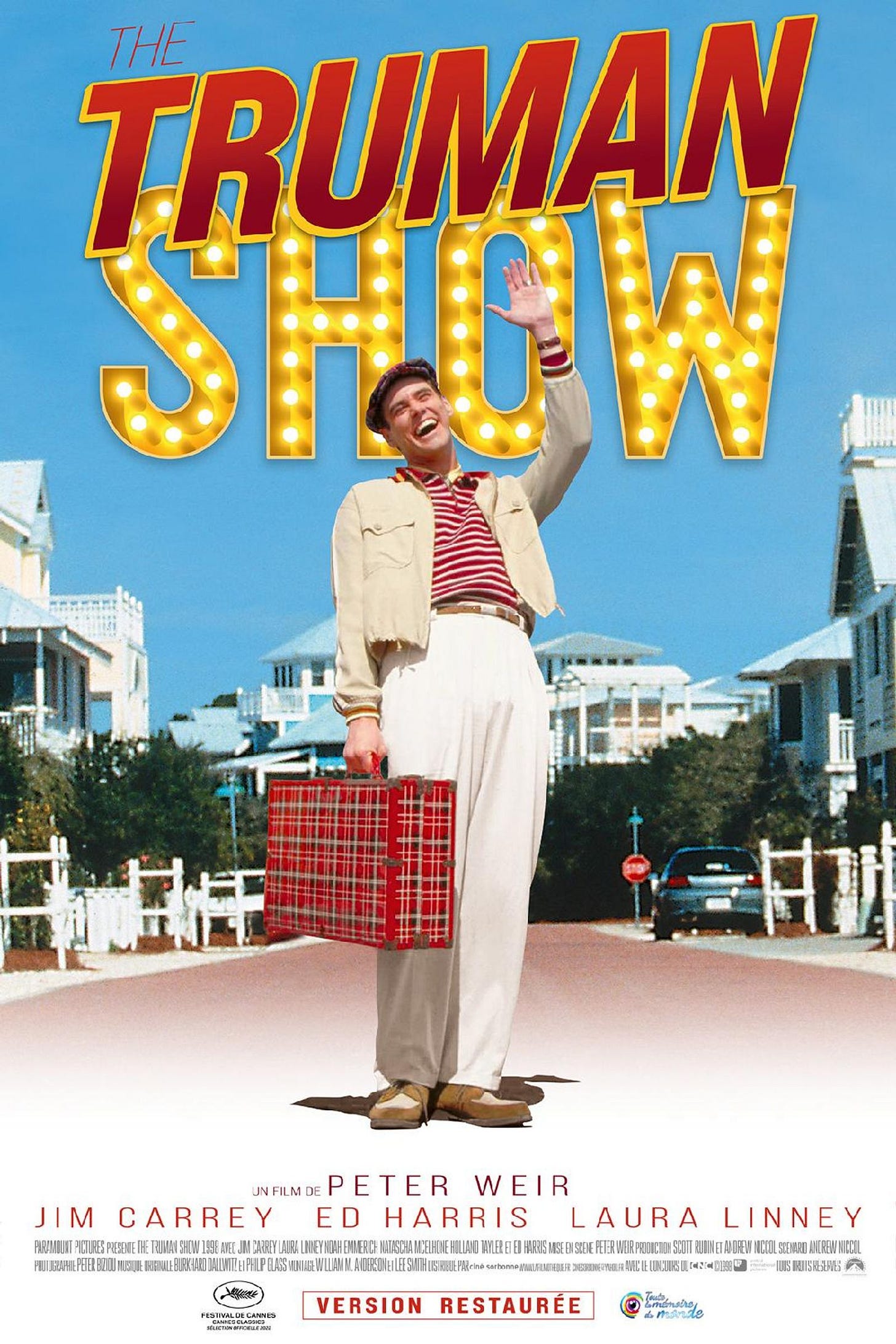The Truman Show (1998): A Reflection on Reality, Surveillance, and Freedom
In 1998, director Peter Weir brought to life a groundbreaking film that challenged the very fabric of reality and surveillance culture. "The Truman Show" starred Jim Carrey in a role that showcased his dramatic depth alongside his comedic prowess. As we revisit this cinematic gem, it's clear that its themes are as relevant today as they were over two decades ago.
At the heart of "The Truman Show" lies the story of Truman Burbank, a man whose entire life is unknowingly broadcast to the world as part of a 24/7 reality television show. Raised within a meticulously crafted artificial world, Truman is the unwitting star of his own existence. Every interaction, every emotion, and every decision he makes is carefully orchestrated by the show's creator, Christof, played masterfully by Ed Harris.
The film serves as a poignant commentary on the pervasive nature of surveillance and the blurring lines between reality and entertainment. In an era dominated by reality television and social media, where every aspect of our lives is susceptible to public consumption, "The Truman Show" feels more prescient than ever. It forces us to confront uncomfortable truths about privacy, consent, and the commodification of human experience.
One of the most compelling aspects of the film is Truman's journey towards self-discovery and liberation. Despite living in a seemingly idyllic world, Truman's subconscious yearning for authenticity and freedom gradually surfaces, leading him to question the confines of his reality. His relentless pursuit of truth becomes a symbol of resilience and defiance against the forces that seek to control him.
Jim Carrey delivers a tour de force performance as Truman, imbuing the character with a potent mix of vulnerability and determination. His portrayal captures the existential angst of a man trapped in a gilded cage, longing for something beyond the confines of his artificial existence. Carrey's ability to transition seamlessly between moments of humor and pathos elevates the film to new heights.
Central to the film's success is its thought-provoking exploration of ethical boundaries and the consequences of unchecked power. Christof, the megalomaniacal architect of Truman's world, serves as a chilling reminder of the dangers posed by those who wield control over the narratives of others. His godlike authority over Truman's life raises unsettling questions about the ethics of reality television and the moral implications of voyeurism.
"The Truman Show" is a testament to the enduring power of cinema to provoke introspection and dialogue. Its nuanced portrayal of human nature and societal norms invites viewers to reconsider their own perceptions of reality and the ways in which they engage with media and technology. As we continue to navigate an increasingly interconnected world, the film's cautionary tale serves as a timely reminder of the importance of vigilance and individual agency.
"The Truman Show" remains a cinematic masterpiece that resonates with audiences across generations. Its exploration of surveillance, freedom, and the quest for authenticity is as relevant today as it was upon its release. Through its compelling narrative and standout performances, the film invites us to confront uncomfortable truths about the nature of our society and our place within it. As Truman's journey reminds us, true freedom lies in the courage to question, to challenge, and to forge our own path in a world that often seeks to confine us.


